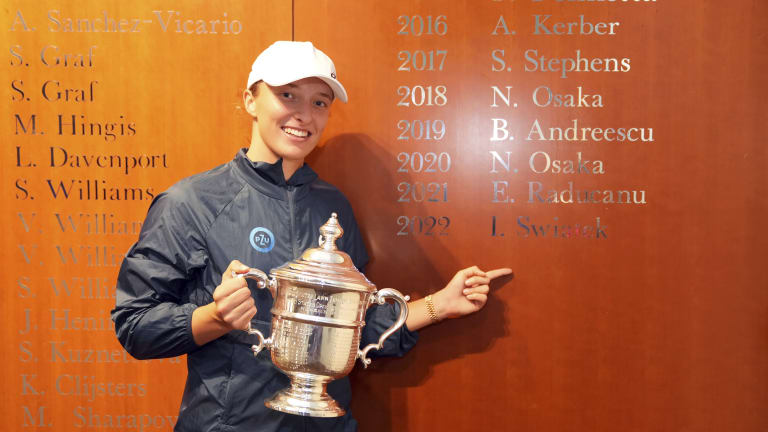US Open
As the US Open reaffirmed, Iga Swiatek feeds off being challenged—and that’s why she’s the best
By Sep 11, 2022US Open
US Open revamps mixed doubles format, adds $1 million prize to incentivize "biggest names in the sport"
By Feb 11, 2025US Open
US Open adds a 15th day, moves to Sunday start in 2025
By Jan 29, 2025US Open
Post-2024 US Open WTA storylines: The Age of Aryna; what's next for Swiatek and Gauff?
By Sep 09, 2024US Open
Post-2024 US Open ATP storylines: The race between Alcaraz and Sinner for No. 1 ... and more
By Sep 09, 2024US Open
Jannik Sinner’s US Open title run won’t clear the air around him entirely
By Sep 09, 2024US Open
Taylor Fritz fails in US Open final, but hope springs for American men's tennis
By Sep 09, 2024US Open
Jannik Sinner storms to second major title, defeats Swift, Kelce-backed Taylor Fritz at US Open
By Sep 08, 2024US Open
Jessica Pegula's willingness to take chances paid off at the US Open
By Sep 08, 2024US Open
Aryna Sabalenka won her first US Open by learning from her past heartbreaks in New York
By Sep 08, 2024US Open
As the US Open reaffirmed, Iga Swiatek feeds off being challenged—and that’s why she’s the best
“It’s also like a confirmation for me that the sky is the limit,” the 21-year-old said Saturday after defeating Ons Jabeur, 6-2, 7-6 (5).
Published Sep 11, 2022
Advertising

Swiatek continued to break new ground for Poland with her US Open triumph.
© 2022 United States Tennis Association